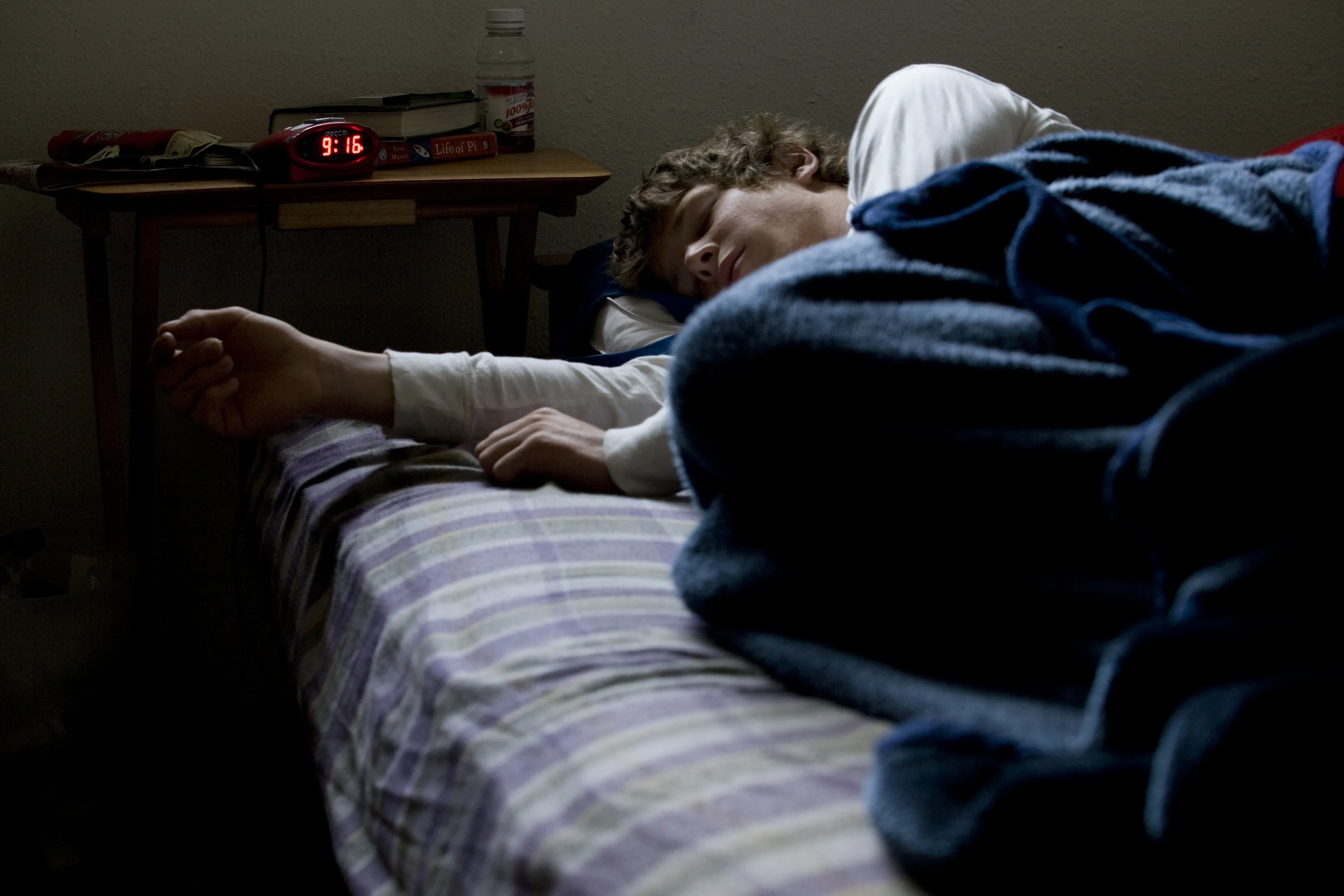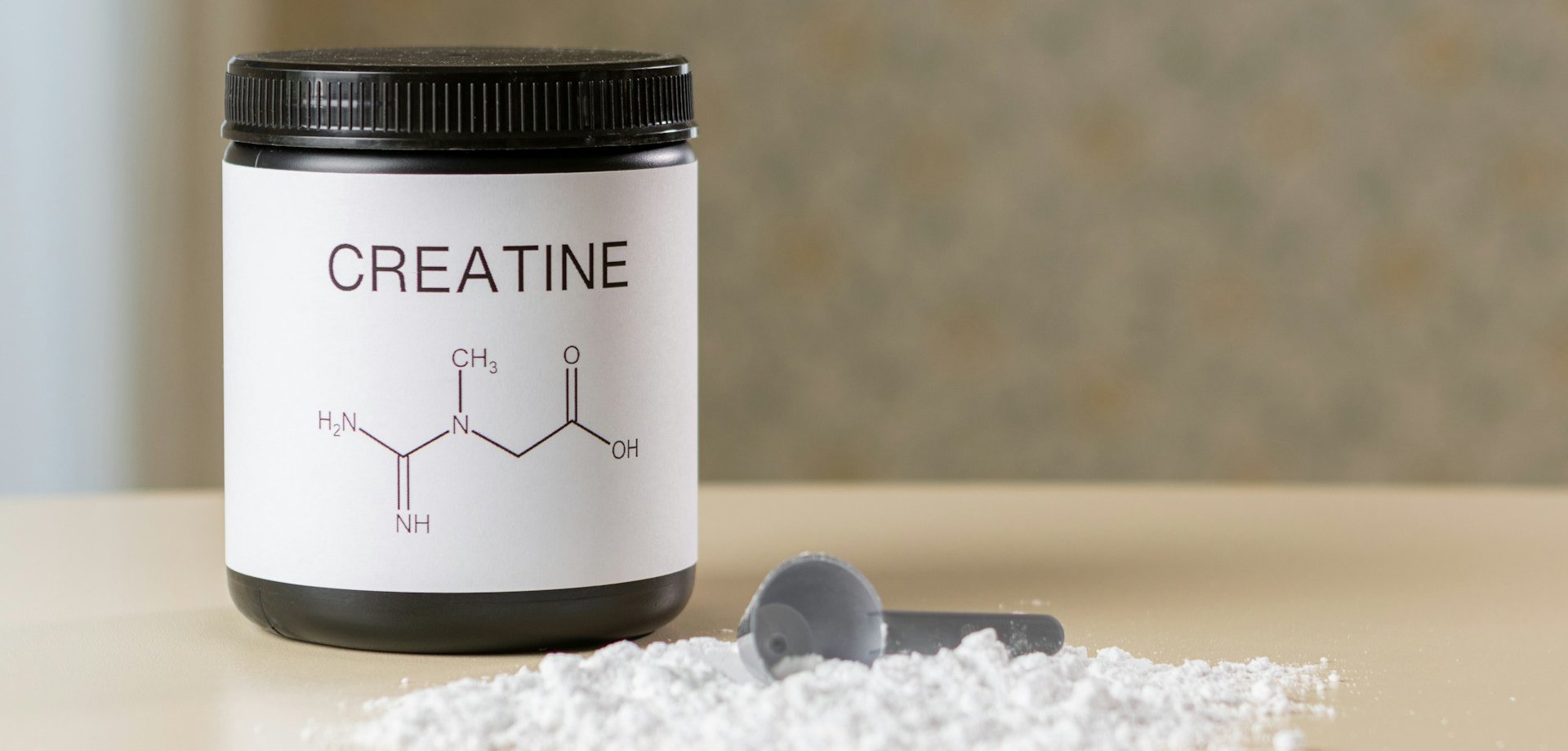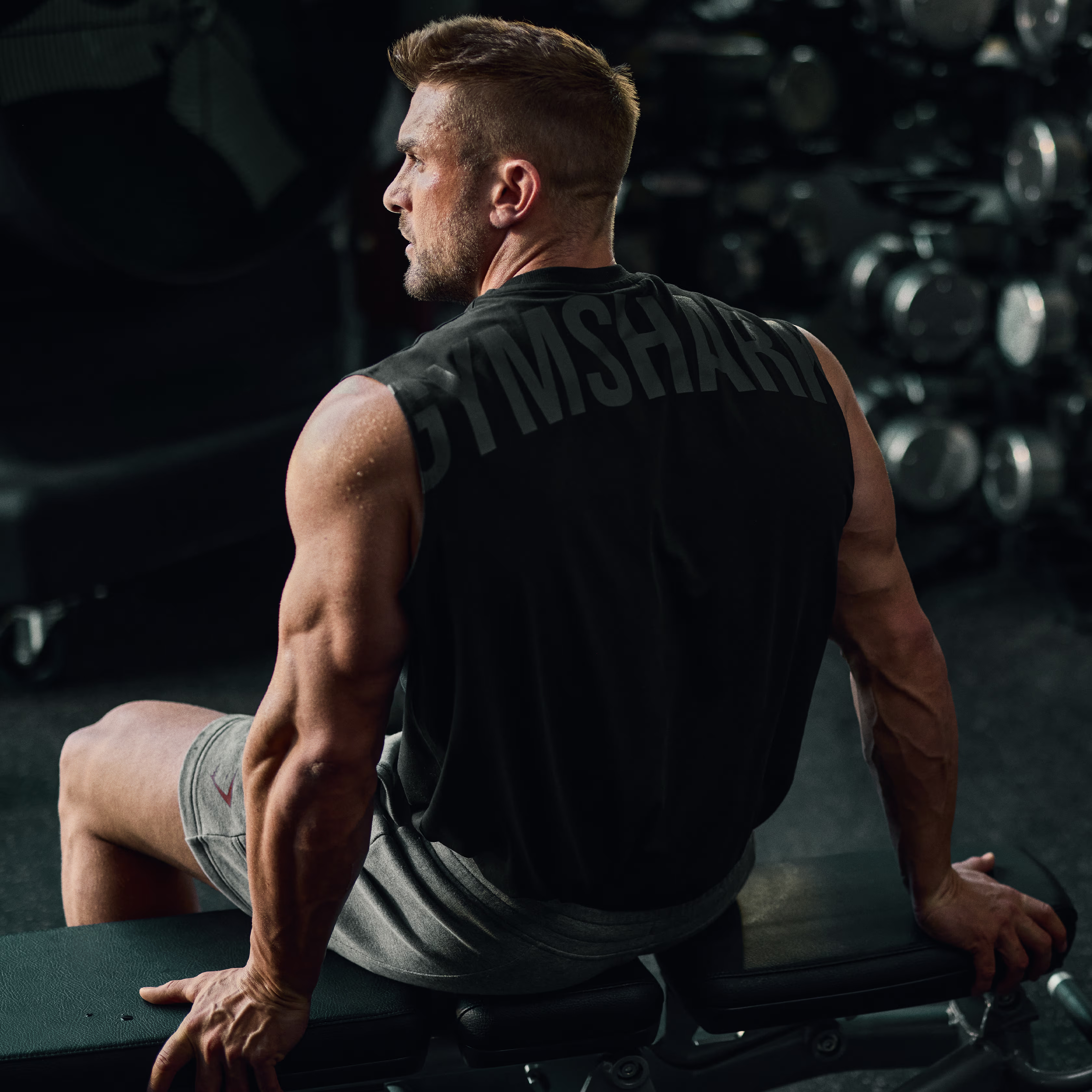A bad night's sleep: a reason to stay up even longer?
Author:
Julio Valero
Published on:
5/23/2025

Effects of acute sleep loss on physical performance: a systematic and meta-analytic review
When we talk about post-exercise recovery, sleep is always the focus. We all know that chronic sleep deprivation negatively impacts performance and health. But what about those occasional nights when we don't sleep well? How does this acute sleep loss affect our performance, and are there ways to minimize its effects?
Overview
For this study, researchers conducted a systematic review and meta-analysis of the existing literature. Their goal was to understand how acute sleep loss (sleeping 6 hours or less in a 24-hour period) affects physical performance.
The findings revealed a negative impact of -7.5% on physical performance (strength, endurance, anaerobic power, etc.) following acute sleep loss. This effect was most pronounced when exercising in the evening. While performance measures varied, most showed a significant decline.
What does this mean for you? Aim for 7 to 8 hours of sleep each night. If you're not getting a good night's rest, try exercising first thing in the morning. If exercise isn't feasible, consider a short 20- to 30-minute nap.
What's the problem?
Good rest is much more than a luxury: it's essential for our physical and mental health, and key to emotional and metabolic regulation. Those who get enough sleep not only perform better but also enjoy better health, which explains why sleep is often praised as a pillar of recovery.
Although we all know its importance, chronic sleep deprivation is a reality for many. It's especially common in high-pressure environments, such as college students and busy professionals, who often sacrifice sleep due to stress, long hours, and bad habits.
But how much sleep is ideal? A 2020 summary of systematic reviews suggests that sleeping between 7 and 8 hours per night is associated with the most favorable health outcomes. While duration is important, so is sleep quality, although the latter is more difficult to measure and recommend in a practical way.
Although sleep is crucial for health, the alarm about sleep deprivation has often been exaggerated, especially in the media. For example, claims like Matthew Walker's in "Why We Sleep" about the risk of cancer from sleeping less than 6-7 hours are exaggerated and lack solid data. However, chronic sleep deprivation is harmful. But what about a single sleepless night?

Wondering if it's worth going to the gym after a bad night's sleep? Or if training with too little sleep is a waste of time? And what about timing? Does it matter whether you train in the morning or at night when you're tired? The systematic review and meta-analysis by Craven et al. may provide some clues.
Purpose & Hypothesis
The authors did not formally state a hypothesis, but the objective of the study was to systematically review the current available data on the effects of acute sleep loss (less than or equal to 6 hours of sleep in 24 hours) on a variety of different performance outcomes (strength, power, endurance, etc.).
What Did They Test and How?
Participants
Seventy-seven studies were analyzed, involving 959 participants and assessing 227 outcome measures (such as power, endurance, and strength). Approximately 90% of the participants were men.
Study Procedures
The authors searched SCOPUS, Web of Science, and PsycINFO for relevant studies for this systematic review. To be included, studies had to be in English, have healthy adult participants, and measure performance on a specific test in a sleep-deprived group (less than 6 hours in 24 hours) versus a control group. As with other reviews in this issue of REPS, study quality was assessed using the Rosendal Scale, which considers design and procedural factors.
Measurements
The researchers categorized each study's exercise or test into one of the following areas: anaerobic power, speed/power endurance, high-intensity interval exercise (HIIE), strength, endurance, strength endurance, and skill. They also collected a wide range of data per study, including participant characteristics (training experience, age, etc.), sleep protocols, and the tools used to assess sleep duration.
The sleep restriction methods used in the included studies were as follows:
Initial sleep restriction: Participants remain awake at the beginning of their sleep schedule.
Final sleep deprivation: Participants are allowed to sleep initially, but are awakened and kept awake during the final hours of their sleep.
Controlled sleep interruptions: Refers to the practice of breaking up an individual's sleep into planned intervals of wakefulness.
Total sleep: Participants experienced complete sleep deprivation.
Figure 1 Types of Sleep Loss Encountered
What Did They Find?
Overall
When analyzing the overall effect of sleep deprivation on performance, the researchers found a significantly negative impact of approximately -7.5%. Interestingly, this negative effect was most noticeable in total sleep deprivation and sleep restriction (without specifying the type), as well as in late-night restriction, but not in early-night restriction.
Furthermore, the time of day the tests were administered (morning or afternoon) did not significantly alter performance, although the negative impact was slightly greater in nighttime tasks. It was also observed that being awake longer before a test was associated with greater performance decline.
Now that we understand the overall effect of sleep deprivation on performance, it's time to break it down by performance category!
Anaerobic Power
An analysis of 32 studies revealed that sleep deprivation impairs anaerobic power, reducing it by an average of 6.3%. This decrease was observed with sleep deprivation and restriction, especially in nighttime performance. Interestingly, the negative impact was not evident when exercising in the morning.
Speed/Power Endurance
An analysis of 20 speed/power endurance studies revealed that sleep deprivation may have a slight negative impact (approximately -2.9%). However, this effect is most noticeable on nighttime performance, and sleep restriction (especially late-night sleep restriction) appears to be more detrimental than total deprivation or early-morning sleep restriction. Morning tests showed no effect.
High intensity interval training
Does sleep deprivation affect your performance in high-intensity interval training (HIIT)? The answer is a resounding yes. Research analyzing eighteen HIIT studies revealed that sleep restriction, deprivation, or delayed sleep restriction had a significant negative effect on performance, with an average decrease of 6.5%.
Interestingly, this negative impact was not observed in those who followed an early sleep restriction protocol. Similarly, the analyses showed that nighttime performance was impaired, while morning performance was not. In short, getting enough sleep is key to optimizing your HIIT sessions.
Strength
Lack of sleep also impacted strength, decreasing it by -2.85%. This was a significant negative effect, according to the 25 strength studies analyzed. Once again, it appears that performance is affected at night, but not in the morning.
Endurance
Endurance was found to be significantly impaired by sleep deprivation, with a decrease of approximately 5.5%. This finding, consistent across 20 studies, showed that the timing of training (morning or evening) did not alter this effect.
Strength Endurance
Only five studies examined strength endurance, showing that sleep deprivation impaired it by approximately 10%. Due to the paucity of research in this area, more in-depth analyses for other performance outcomes were not possible.
Skill
In a fascinating category that includes cognitive activities such as basketball shooting, tennis serving, and rugby passing, the evidence is clear: the nine studies reviewed show that sleep deprivation has a significant negative impact on performance in these skills (a 20.9% decrease), and this occurs both in the morning and at night.
What Do the Findings Mean?
Sleeping six hours or less can affect your training performance. In fact, each hour of sleep lost could reduce your performance by 0.4%. Since sleep is vital for recovery, this decrease makes sense. However, keep in mind that these performance drops, although measurable, may not be large enough to significantly impact your daily training and could even be considered part of normal performance fluctuations.
Thoroughly investigating the causes of performance decline was beyond the scope of this review, given the complexity and vast array of mechanisms involved. Listing each one would be impractical, as they range from alterations in blood pressure and perception of exertion to variations in muscle glycogen and hormonal balance (such as cortisol and testosterone). Although previous studies have shown that acute sleep loss (six hours or less in 24 hours) can negatively impact cognitive and physical performance, its effect is minor compared to chronic deprivation. It's worth noting that competitive athletes often experience sleep disruptions prior to important events, but this doesn't seem to impair their performance.
On the other hand, research shows that extending sleep hours can significantly improve athletic performance. Several studies have explored this effect. For example, lengthening sleep to around 10 hours for several months showed notable improvements in sports such as basketball (increasing sprint time and passing accuracy) and tennis (improving serve accuracy), with an increase in performance of up to 9%.
It appears that insufficient sleep or going to bed too late has a more negative impact than interrupted sleep or going to bed early. This could be because, with sleep deprivation and late sleep restriction, people spend more time awake before an activity or test. It would also explain why nighttime performance is more affected by sleep deprivation than morning performance.
How Can You Apply These Findings?
To boost your performance and improve your health, the goal is to consistently sleep 7 to 8 hours a day. This isn't a surprise, but it's critical.
It's normal to have a bad night's sleep from time to time, and that's where this information will come in handy. First, don't stress yourself out: a single night of poor sleep likely won't drastically affect your performance. If you're sleeping 6 hours or less, consider training earlier the next day, as lack of sleep can impact your performance.
We know that an occasional poor workout isn't serious, but this solution could help you manage periods when sleep is disrupted by uncontrollable circumstances (e.g., the arrival of a new child).

But that's not all! Daytime naps are also a powerful tool when you're sleep-deprived. A 2021 review found that a 20- to 35-minute nap can reverse the negative effects of sleep deprivation on your cognitive and physical performance. While longer naps (35-90 minutes) may offer even more benefits, don't underestimate the power of a short break!
So, relax—an irregular night's sleep isn't the end of the world. To ensure your performance is optimal, prioritize your morning workout. If that doesn't work, consider taking a nap to recharge.
References
Worley, S. (2018). The Extraordinary Importance of Sleep. Pharmacy and Therapeutics, 43(12).
Di, H. et al. (2022) “Evaluation of sleep habits and disturbances among us adults, 2017-2020,” JAMA Network Open, 5(11). Available at: https://doi.org/10.1001/jamanetworkopen.2022.40788.
Suen, L.K., Ellis Hon, K.L. and Tam, W.W. (2008) “Association between sleep behavior and sleep-related factors among university students in Hong Kong,” Chronobiology International, 25(5), pp. 760–775. Available at: https://doi.org/10.1080/07420520802397186.
Chaput, J.-P. et al. (2020) “Sleep duration and health in adults: An overview of systematic reviews,” Applied Physiology, Nutrition, and Metabolism, 45(10 (Suppl. 2). Available at: https://doi.org/10.1139/apnm-2020-0034.
Gao, C. et al. (2022) “Sleep duration/quality with health outcomes: An Umbrella Review of Meta-analyses of prospective studies,” Frontiers in Medicine, 8. Available at: https://doi.org/10.3389/fmed.2021.813943.
Fullagar, H.H. et al. (2014) “Sleep and athletic performance: The effects of sleep loss on exercise performance, and physiological and cognitive responses to exercise,” Sports Medicine, 45(2), pp. 161–186. Available at: https://doi.org/10.1007/s40279-014-0260-0.
Killgore, WD y Weber, M. (2013) “La privación del sueño y el rendimiento cognitivo”, Sleep Deprivation and Disease , págs. 209–229. Disponible en: https://doi.org/10.1007/978-1-4614-9087-6_16 .
Lastella, M., Lovell, GP y Sargent, C. (2012) “El comportamiento del sueño precompetitivo de los atletas y su relación con el estado de ánimo y el rendimiento precompetitivos posteriores”, European Journal of Sport Science , 14(sup1). Disponible en: https://doi.org/10.1080/17461391.2012.660505 .
Mah, CD et al. (2011) “Los efectos de la prolongación del sueño en el rendimiento deportivo de jugadores universitarios de baloncesto”, Sleep, 34(7), pp. 943–950. Disponible en: https://doi.org/10.5665/sleep.1132 .
Schwartz, J. y Simon, RD (2015) “La prolongación del sueño mejora la precisión del servicio: un estudio con jugadores de tenis universitarios”, Physiology & Behavior, 151, págs. 541–544. Disponible en: https://doi.org/10.1016/j.physbeh.2015.08.035 .
Botonis, PG, Koutouvakis, N. y Toubekis, AG (2021) “El impacto de la siesta diurna en el rendimiento atlético: una revisión narrativa”, Scandinavian Journal of Medicine & Science in Sports , 31(12), págs. 2164–2177. Disponible en: https://doi.org/10.1111/sms.14060 .
Comparte en redes sociales
Recent posts

A bad night's sleep: a reason to stay up even longer?

Creatine Effectiveness: What Does Science Say About Its Benefits?

Does meal timing help you lose fat?

Is your triceps press building muscle or holding you back?

Nutrition tailored to you: based on your genetic profile.

Carbohydrates: the key to an explosive workout.